How to convert a car or van into the perfect micro camper
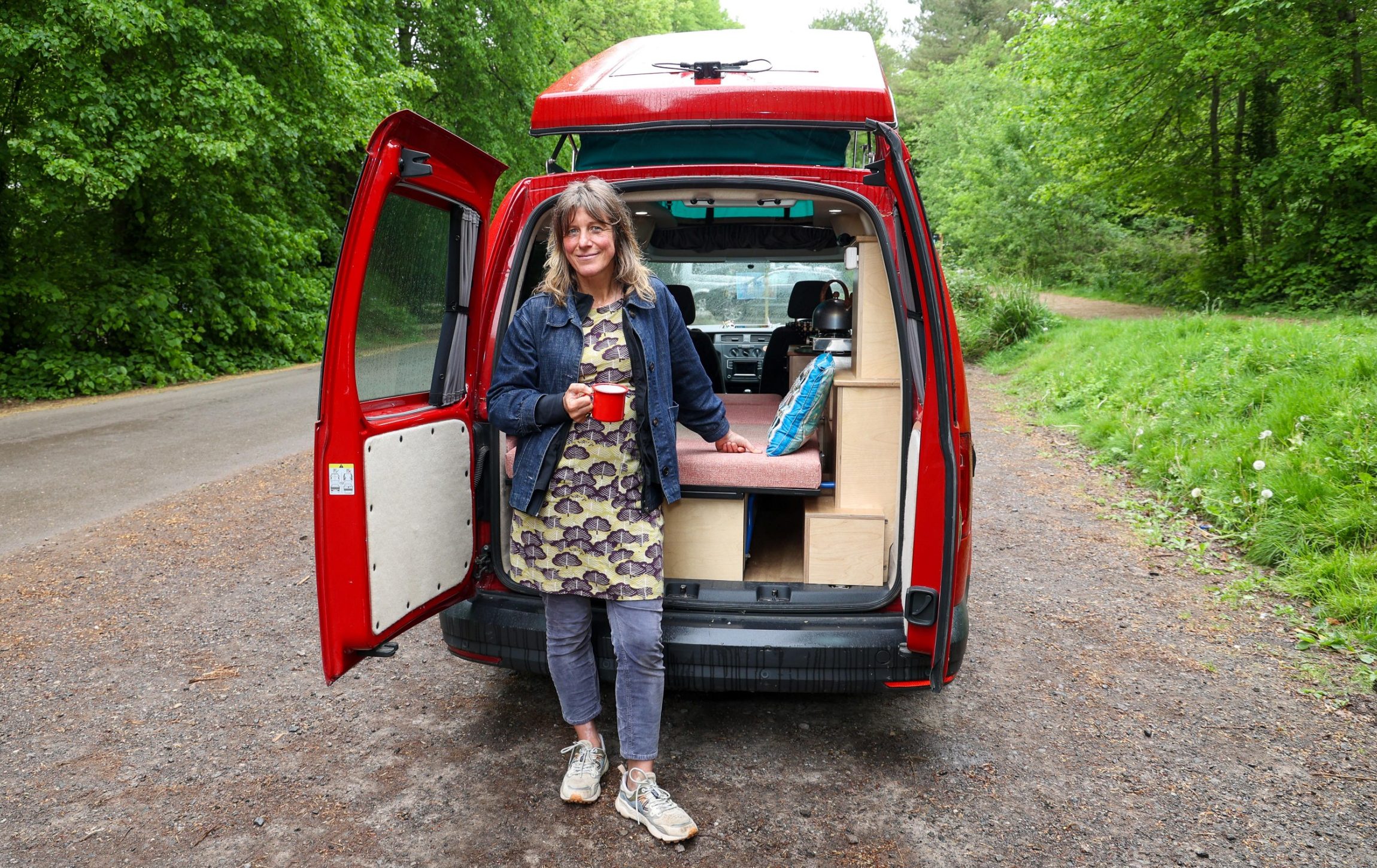
When Amanda Talia failed to engage with walking in the hills, she was taken aback by the beauty of the surrounding countryside and craved the opportunity to sit for longer in the fresh air. "I wanted to be able to park my van in the mountains, hear the sound of running water, the birds singing in the trees. So, I bought a Vauxhall Vivaro and converted it into a campervan. Now, after a hill climb, I simply jump in, warm up, put the kettle on, and unwind while taking in breathtaking views."
Caravans by another name are once again gaining popularity.
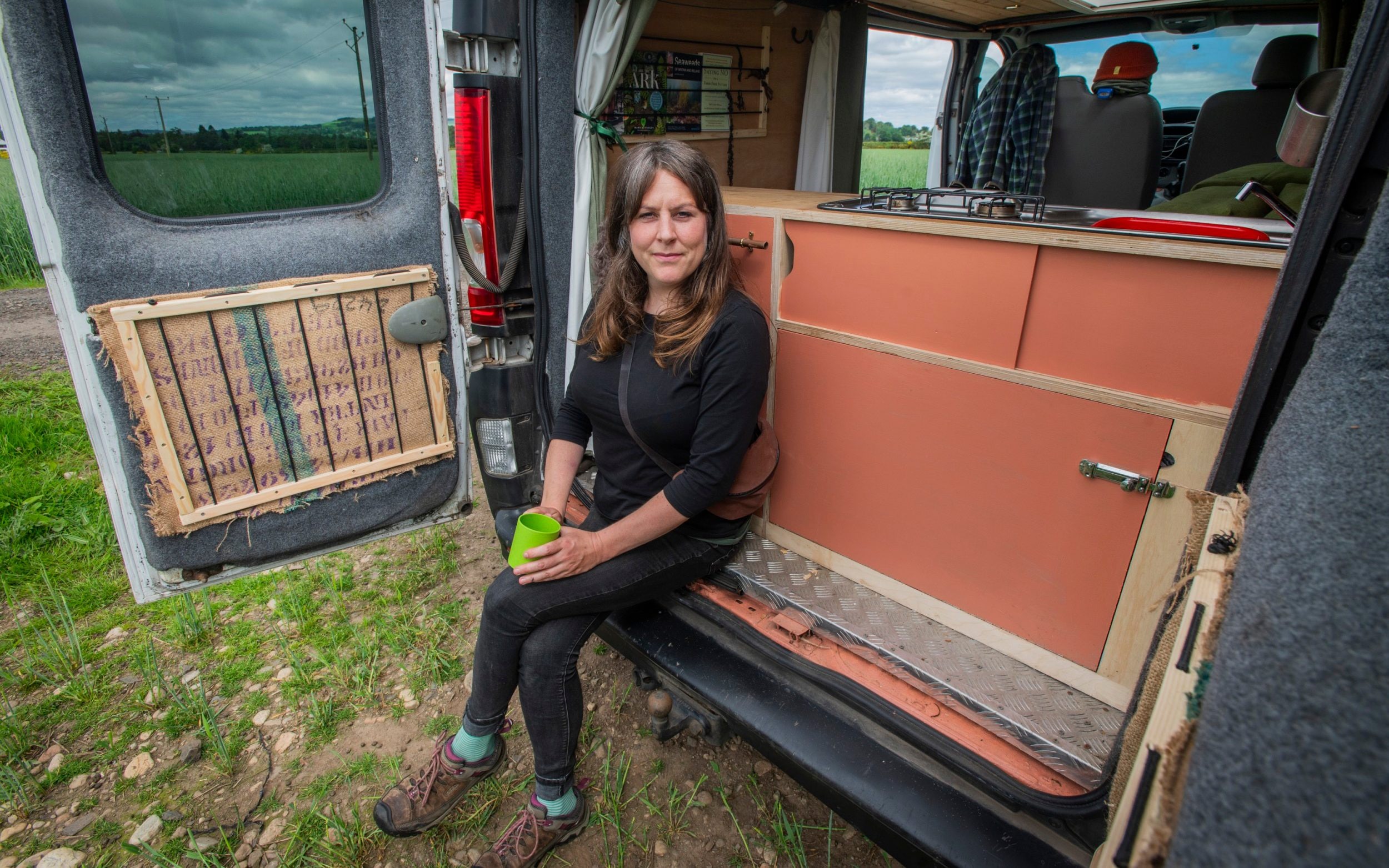
We have provided people with the desire and freedom to get up and travel whenever and wherever they please.
As technology advances, it is becoming increasingly easier to use. whilst navigating a six-person motorhome around a mountain path may appear intimidating, a vehicle the size of an estate car, such as a Citroen Berlingo, Renault Kangoo or VW Caddy, is much more manageable to drive. Clara Usiskin is the co-director of Love Campers, a company that specialises in converting small vans into "micro-campers" - a popular sub-class of campervans - a trend that is also gaining rapid popularity.
The Japanese excel at crafting ingenious items in compact spaces, and that's precisely what a micro-camper is all about – intelligent design.
“Can you genuinely pack everything you require in a van of that size?”
“Absolutely,” she says. “Everything you need for a bigger van can be fitted into a micro – a cooker, a sink unit, a fridge, a freezer, as well as two seats that convert into a double bed. Micro-campers are flexible, as individuals can use them for trips but also as a second car. So, preferably they'll have one micro-camper instead of having a full-sized van just sitting idle on a driveway for months. This option is both cost-effective and more eco-friendly.”
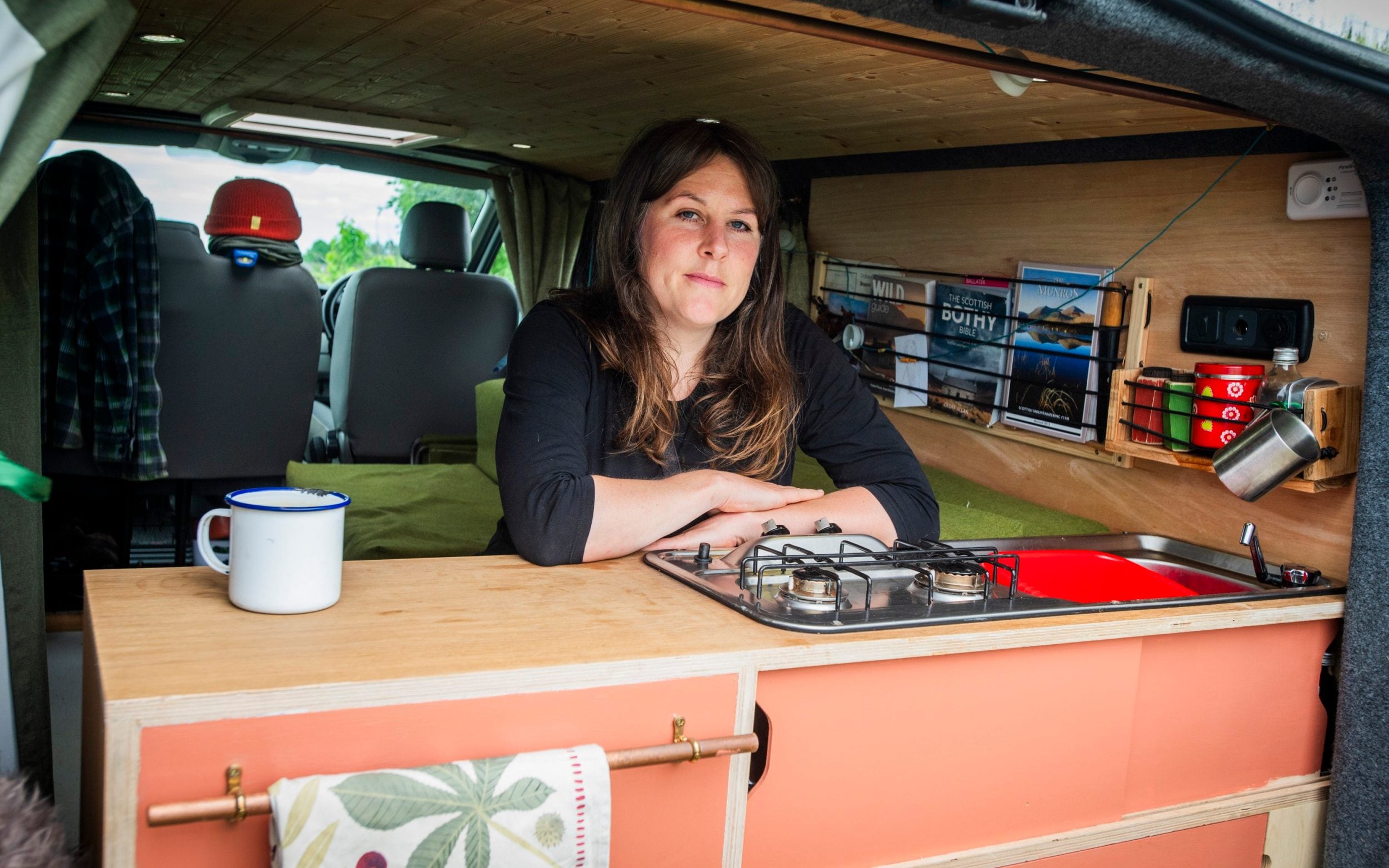
and notes that his clients are often at distinct stages of their lives. "We get women who are solo in their mid-30s, midlifers who are emerging from a divorce and others who are looking to unwind during retirement. Currently, I am working on a conversion for a lady in her mid-40s who is using some of her inheritance to convert a van." Despite varying ages and circumstances, these women share a similarity. "They've come across the Instagram posts, they know they can work remotely and they possess the same attitude," he remarks. "They simply think, bugger it, I'm going to live life on my own terms."
But to share ideas, knowledge, and considerable conversation expertise.
The joy of the converted van community, says Mickey, is the variety of options available. Lamburn agrees: “There are clear benefits to a professional conversion, firstly the time it takes – we can complete a full conversion in 8 to 12 weeks whilst a DIY job could take up to a year. Secondly, the finish – our vans will have an exceptional, photogenic finish that will enhance the resale value; lastly, safety – you have the peace of mind of knowing that the gas and electrical systems are fully certified and you won't be at risk of carbon monoxide poisoning while you sleep.” However, a professional conversion is also expensive. “You can expect to pay £20,000 to £40,000 on top of the cost of the van for the conversion,” says Lamburn, “so if you have the skills and are happy to take on the challenge you can save a significant amount of money and still be creative.” There are numerous talented female van converters, it's great to see.
The professional conversion
My tiny campervan has really swept me off my feet.
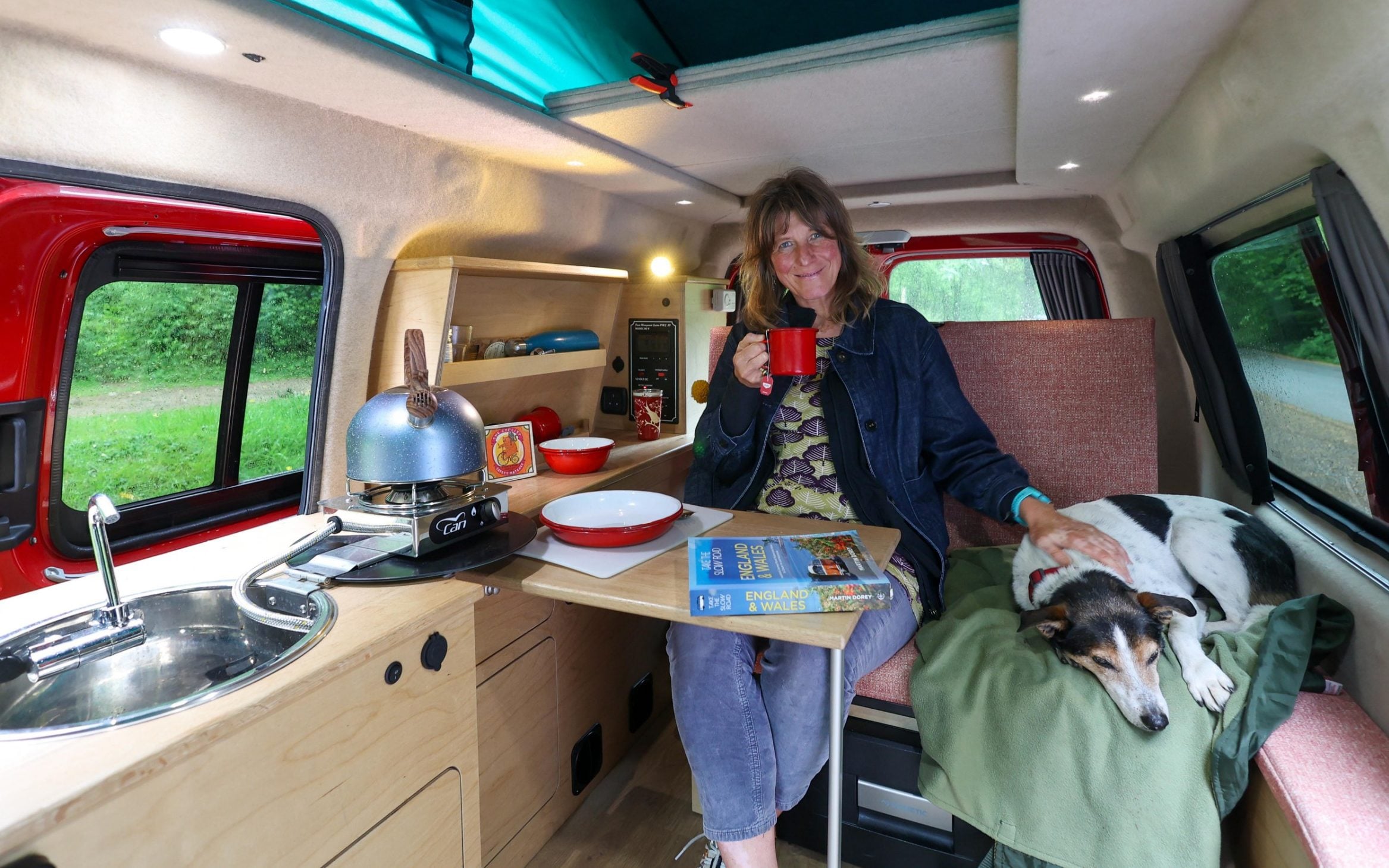
Mags MacKean, 52, from Bristol, is a writer, a former BBC journalist, and a tour guide. She owns a converted Volkswagen Caddy Maxi van, which is nicknamed Queenie.
I've always been captivated by the idea of simple living and appreciate the appeal of a no-frills existence. It's the thrill of uncertainty, the feeling of "where will I end up at night?" that Queenie enables me to indulge in this sense of adventure.
Life under lockdown sparked a yearning for liberation, a desire to cast off the confines and roam carefree, untethered like a fleck of dust on a gust of air. I reasoned that a compact camper van with a short wheelbase would be perfect, offering a more agile and convenient alternative to a car. With this in mind, I sold my car and opted for a low-emission model, which not only saves the planet but also means I can travel anywhere without worrying about extra fuel charges.
While browsing online, I stumbled upon LoveCampers.co.uk, who specialise in modifying and optimising their micro-campers to make the most of every available space. It takes meticulous planning to strip the camper bare and pack it with just the essentials for extended travel, even in a relatively small vehicle. I'm very fond of my van; it's beautifully designed and expertly crafted, featuring a clever rock and roll double bed that can be converted into seating for two passengers in the back (which is essential as it's now my primary mode of transport). The portable cooking facilities are impressive – my campervan's hob cooker surpasses the one I have at home. I appreciate the thoughtful design that allows the cooker to fold away, revealing a dedicated space for food preparation. The interior has a lovely, sustainable wood finish, and there's a heater for colder weather, as well as adaptable lighting that lets me switch up the ambiance to suit my mood. Additionally, the pop-top roof allows for extra headroom and the ability to create a more spacious interior.
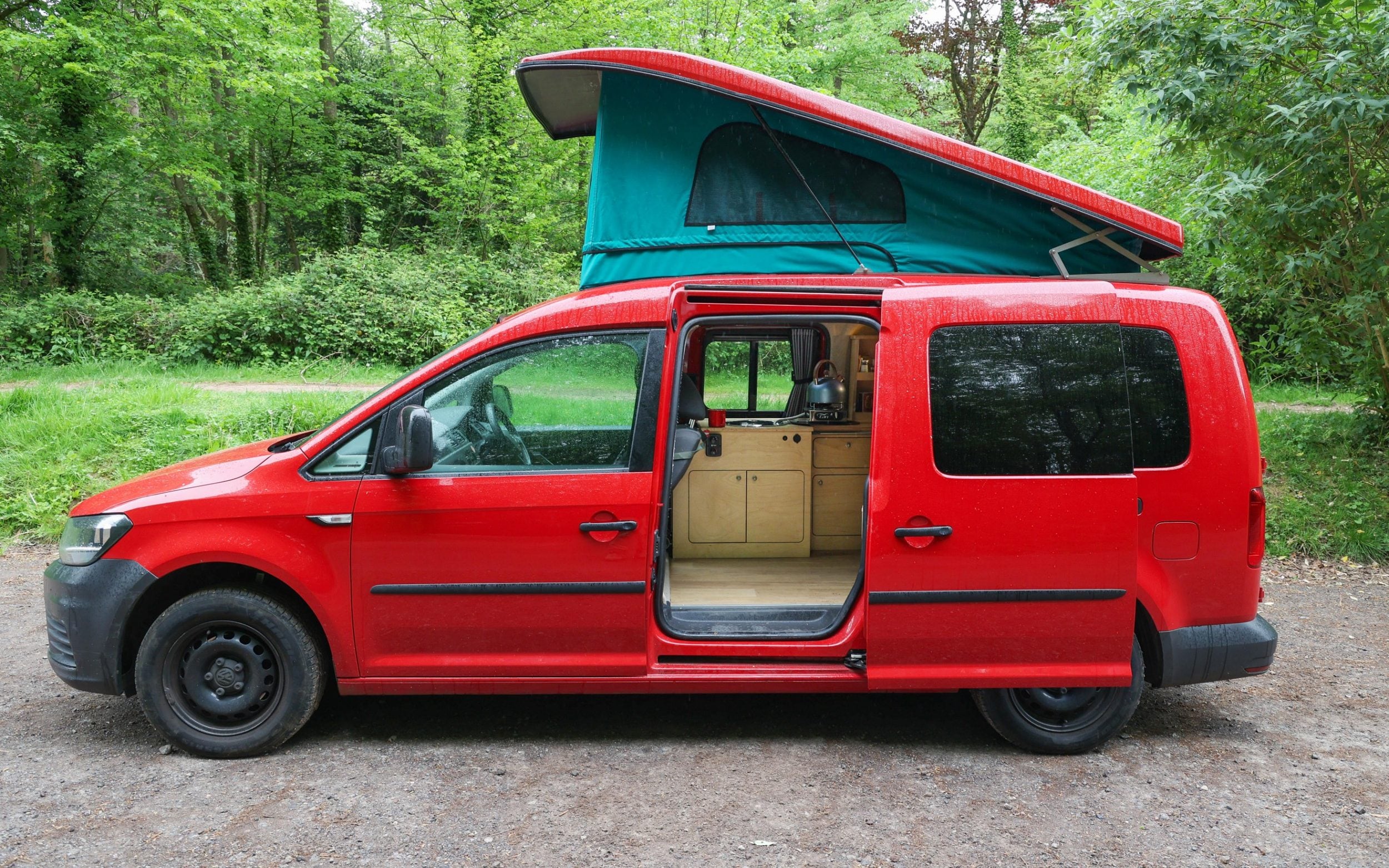
My micro-camper has allowed me to develop a passionate fondness for the UK. As a tour guide, I thought I was quite familiar with the island, but the freedom to just roam about has revealed aspects of the place I'd never appreciated before. I'm preparing for a six-week excursion to the Scottish isles and I'm really looking forward to it.
Highlight
Visiting the Llŷn Peninsula which encapsulates all that is so resplendent about Wales. I found myself utterly unable to depart.
Low point
None as yet.
Top tip
Embracing the journey, after all, is a key benefit of being on the move in a van and not being tied to a specific base.
The assisted DIY conversion
A far more economical alternative to booking through Airbnb
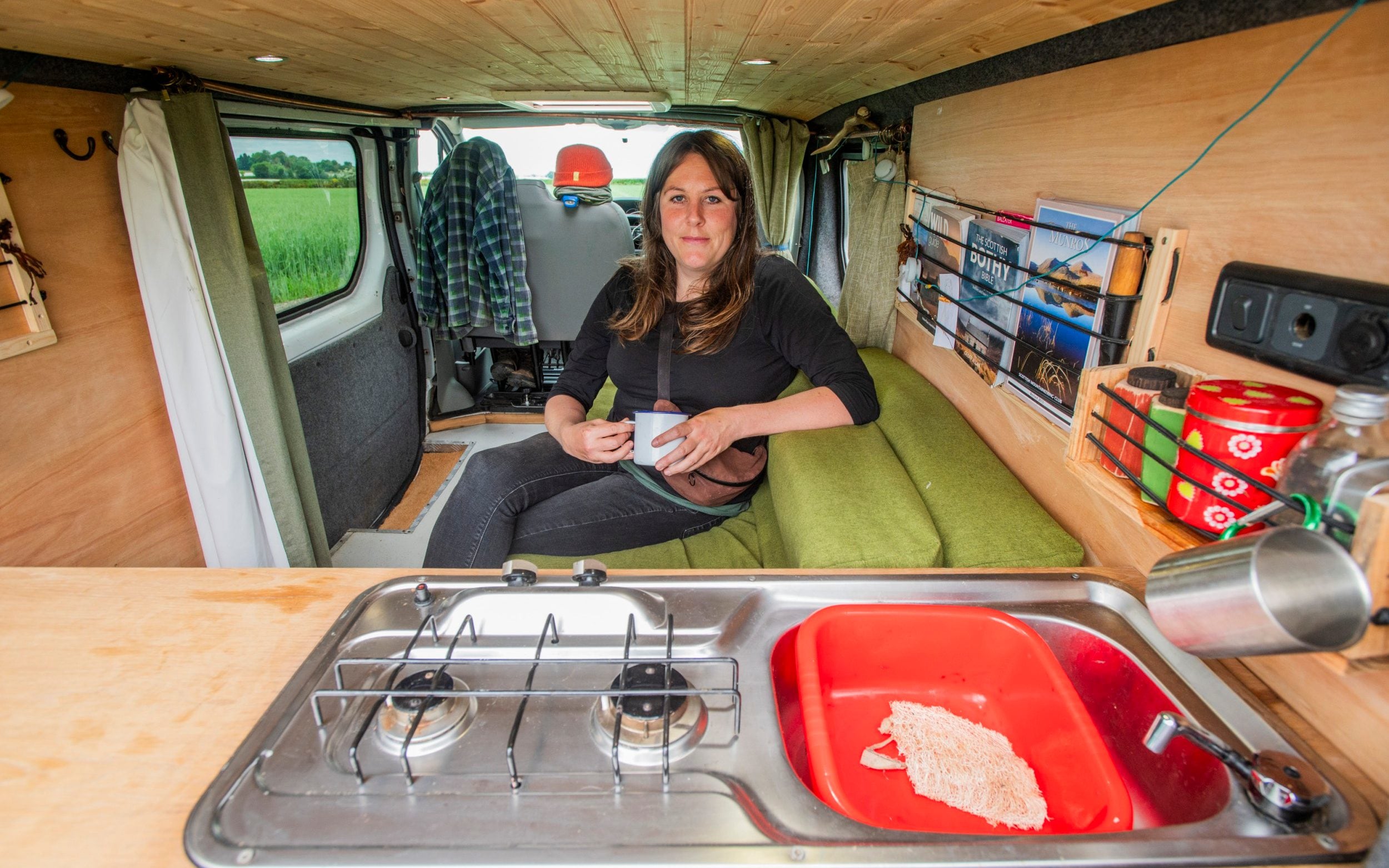
Amandla Taylor, 39, is an ecologist living in Perthshire. She has converted her Vauxhall Vivaro camper van using flat-pack modules.
I purchased my van as a means of saving money on overnight stays while pursuing my passion for hill walking at weekends. Given the extensive travel I undertake throughout the UK, I concluded that investing in a van would be more cost-effective than consistently paying for bed and breakfasts. The van cost £8,000 in 2021, following months of deliberation, but I was poorly prepared for the considerable time-consuming task of renovating it myself. Upon acquiring the van, it was in a rough state, smothered in grease, paint, and dust, and the initial cleaning process alone took a substantial amount of time. To progress with the renovation, I had to meticulously strip the van back by removing the panels. In hindsight, I had overestimated my DIY expertise, as the metalwork was more complicated than I anticipated, and I lacked the necessary tools.
Instead of giving up, I contacted the Men's Shed Association, a national scheme of community workshops where you can learn new skills, ask for advice and borrow tools. They were kind enough to pair me with an inspirational man in his eighties who was very approachable and knowledgeable. He gave me the confidence to use a range of tools including a grinder and a belt sander. Finding furniture for my van proved straightforward, thanks to Contour Campervan Furniture. They design and manufacture excellent, eco-friendly kits that fit numerous types of vans, which come flat-packed for assembly.
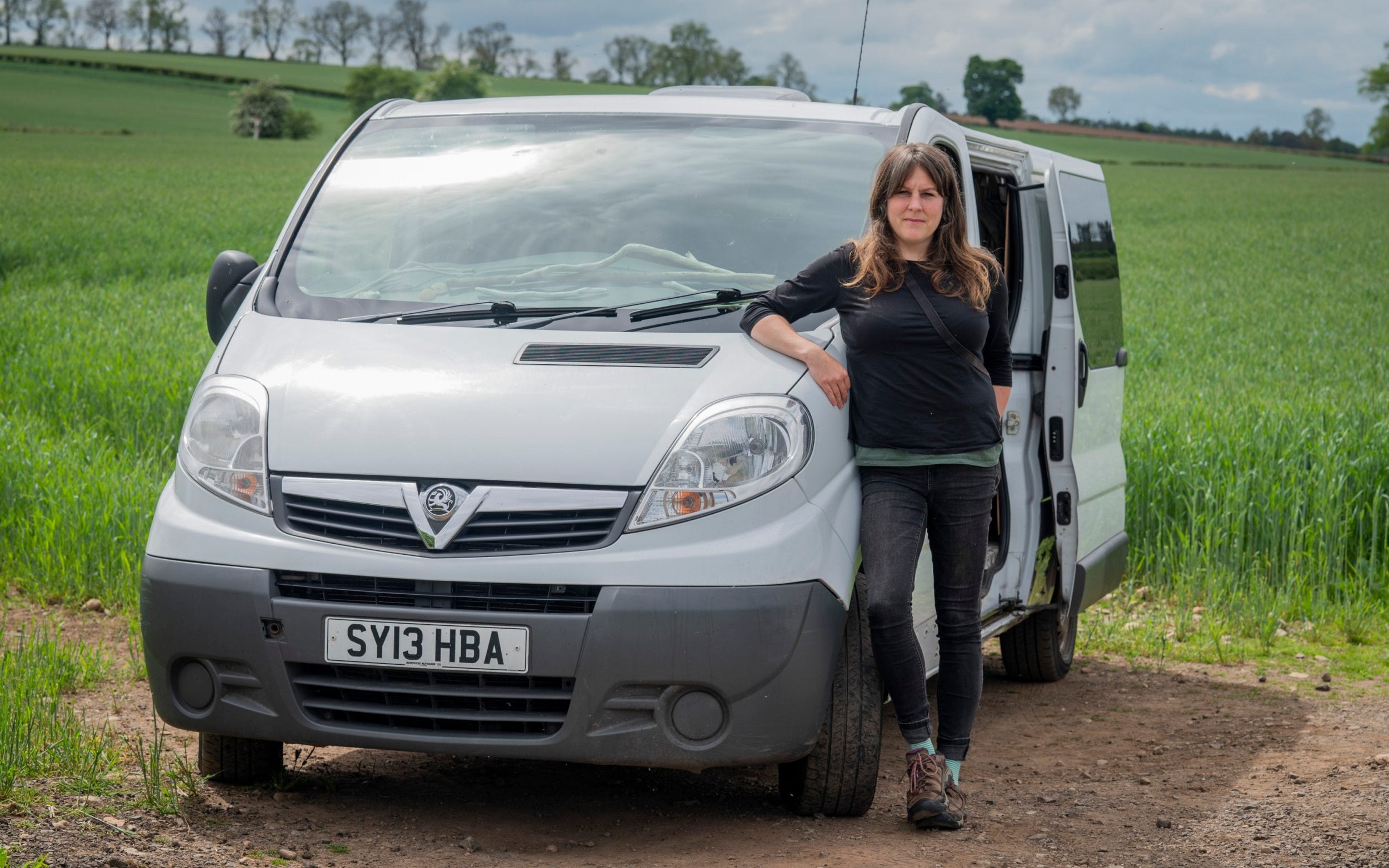
I invested £2,500 in a sofa bed and a compact kitchen with a sink and gas hob that can be used inside or outside the motorhome, which I fitted myself. Additionally, I repurposed scrap wood to create storage units and installed a rotating front seat that can function as a passenger seat or an armchair when parked, enhancing the van's comfort. The interior has been insulated with sheep's wool and an extra layer, allowing it to stay warm even in cold weather; I recall not needing to use the heating system when I was in Glencoe recently, where the temperature plummeted to minus 2 degrees. The entire conversion process took approximately one year, completed during my free time, and it has really boosted my self-confidence as I've developed new skills and made new connections. I've developed a strong passion for hillwalking and now thoroughly enjoy heading into the hills – I'm currently working towards completing all the Munros – and coming back to the van for a warm meal while taking in the stunning views of Scotland.
Highlight
I've grown accustomed to a more leisurely and uncomplicated lifestyle in a modest setting, where one comes to realise that material possessions aren't of the utmost importance. For me, it's spending time amongst the great outdoors that brings the greatest sense of satisfaction.
Low point
I was all ready for some exciting exploits, but my van broke down due to mechanical problems and I was grounded. Luckily, I've now had the issues sorted, so I'm making up for lost time.
Top tip
Discover a women's carpentry course: 'I attended one at Coed Talylan in Wales.'
I don't see any text provided. Please provide the text you'd like me to paraphrase, and I'll assist you.
‘My van converted into a way to earn extra money on the side’
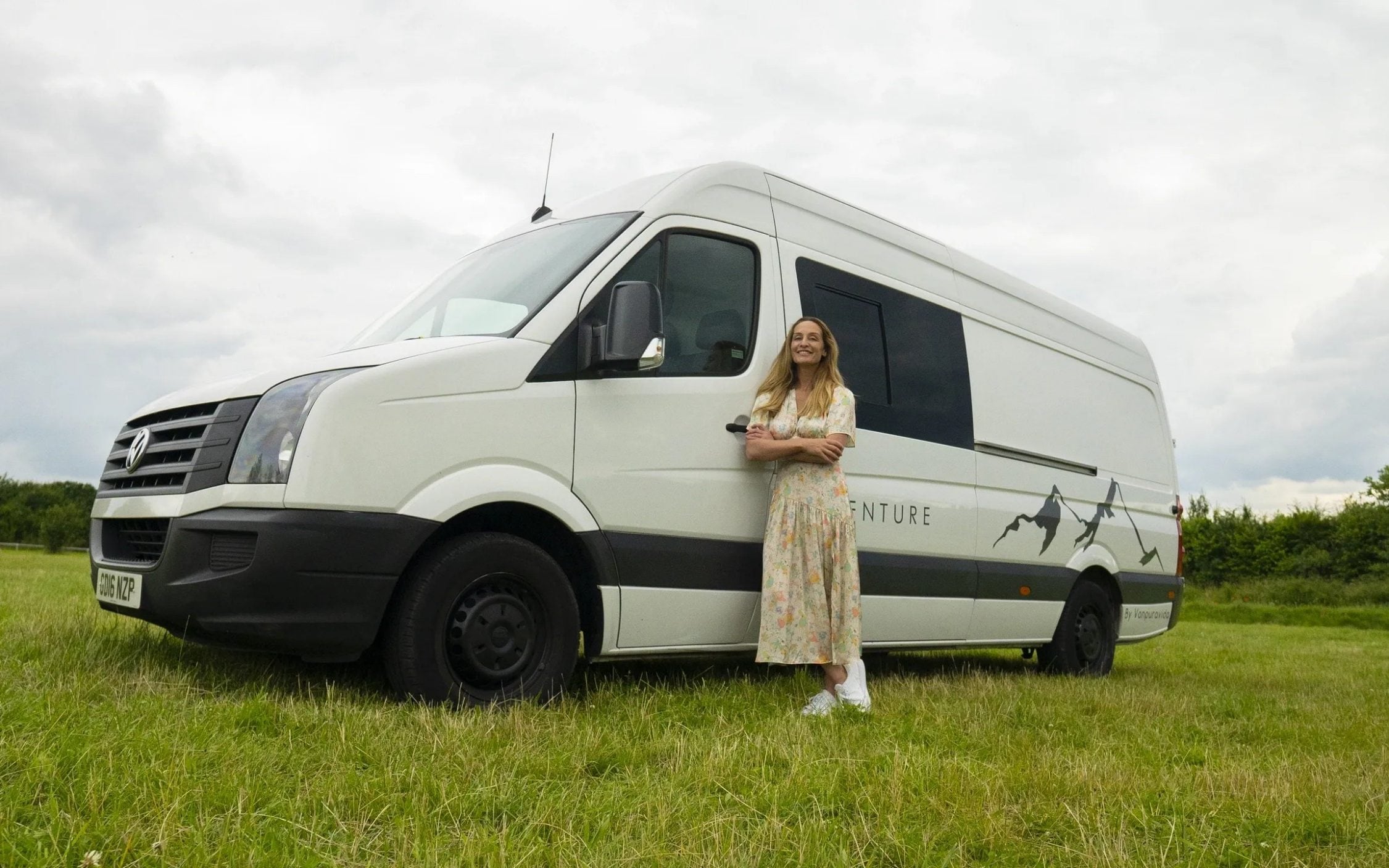
Octavia Coates, 45, resides in St Albans, Hertfordshire. She purchased and transformed Roaming Delilah, a reworked VW Crafter panel van.
My motorhome was intended to be a home, not literally a van where I would reside. The money I used to purchase and refurbish Delilah had previously been allocated for a house deposit, which I'd been saving for years for. I was merely months away from affording the property market, but then COVID-19 struck and my income plummeted dramatically. As a result of being self-employed, even with that deposit, mortgage lenders no longer wanted to lend me the sum necessary. Consequently, I had my home ownership aspirations in shatters, and thousands of pounds were idle in the bank, all while being confined indoors during a pandemic. The yearning to be out in the world had never been more pronounced, so I chose to invest in a camper van, figuring I could always sell it if need be.
I purchased a traditional white van for a sum of £20,000 and utilised the services of three experts, including a specialist in gas and electrical systems. The interior design was my own-personal project; I desired a refined aesthetic, as premium as a luxury hotel suite, yet as warm and welcoming as my own living room. Having recognised that being discerning in my choice of materials would allow me to achieve a high-class look without resorting to a completely bespoke build, I set out to put this vision into effect.
to "outsource" it officially.
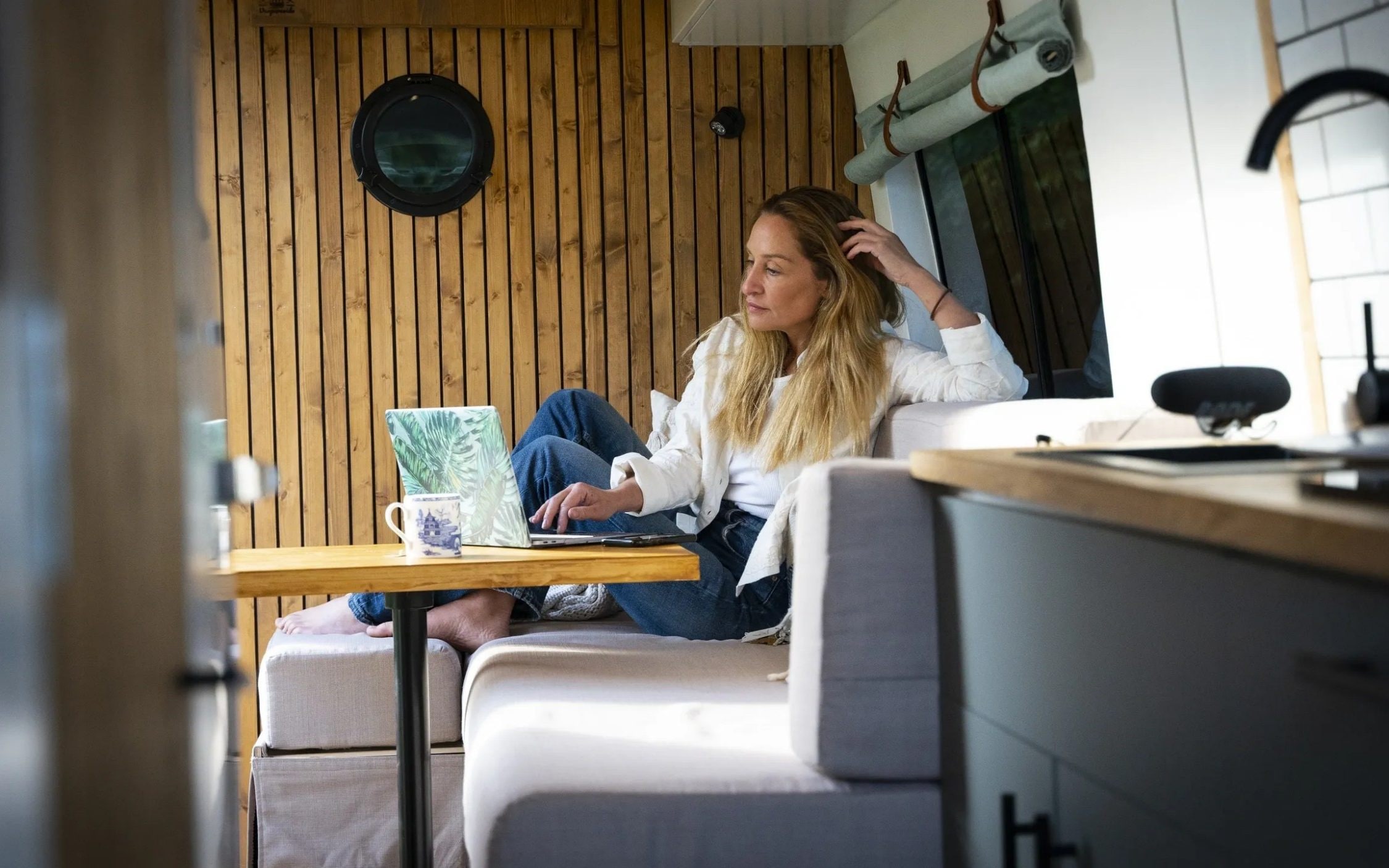
Within a 12-month period, it had generated enough revenue to cover its initial costs. I thoroughly enjoyed running my vehicle-based business, and I've since invested in two more vans - a Mercedes Sprinter called Captain's Rest, which I've given a cool transport-inspired aesthetic, and Miss Daisy, a 1967 VW Splitty, ideal for those who enjoy the classic driving experience as she's limited to 45 miles per hour. However, it's worth noting that Miss Daisy has a spacious seven-foot-long bed and a well-equipped compact kitchen. Operating this van-based business is now a significant side hustle for me - a considerable amount of work and time is required to maintain the vehicles, ensure adequate upkeep, deal with damage and frequent repairs, and schedule regular services. On the other hand, I thoroughly enjoy being able to hop into one of my vans and go on a whim, unlike a traditional holiday where you are tied to a hotel. The experience becomes the journey itself - your van becomes the holiday.
Highlight
I've set up a store selling camping essentials while working from my van.
Low point
Having to redo some woodwork due to water damage. A breakdown would have been a lot more severe if I'd been on the motorway when my alternator failed, it could have been a frightening and costly experience as well as an inconvenience.
Top tip
The app Park4night is an excellent resource for locating the nearest sites where you can spend the night.
The dedicated DIY conversion
My campervan is a genuine labour of love.
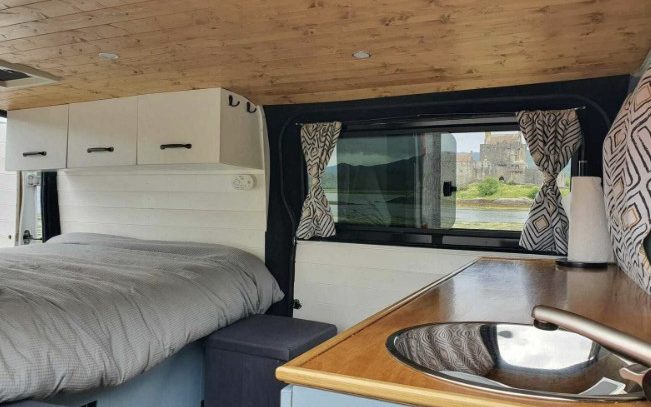
Bellina Fiorelli, 30, a public relations consultant from East Sussex, transformed her Ford Transit, nicknamed "Trixie", into a campervan with her partner Chris.
We acquired our van in 2020, following hours spent browsing Instagram, where travellers were showcasing their adventures while we were facing lockdown here in the UK. Having grown up in a large family with several siblings, I've always been passionate about upcycling and DIY projects, while my partner Chris shares my enthusiasm. With that in mind, we felt well-equipped to embark on this project together. Chris concentrated on deconstructing the van and handling the electrics, while I focused on the woodworking aspects. To get started, we invested in a circular saw and jigsaw.
For the conversion, we visited a DIY store about six times a day at one point in order to gather necessary materials. Despite this, we managed to keep costs down. The van itself cost £3,500, and our DIY efforts allowed us to complete the conversion for around £3,000. We were able to save some money by approaching small tasks in creative ways, such as upcycling old materials to make new items. For instance, I used an old duvet cover to sew curtains and craft cushion seats for our storage containers, instead of using store-bought items.
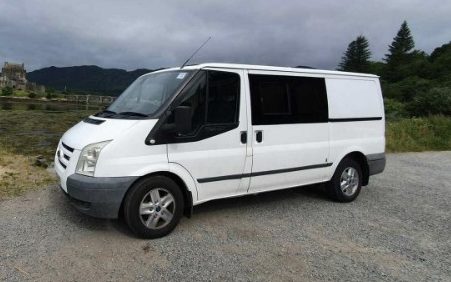
We initially were in London while our van, Trixie, was undergoing conversion. Due to the fact it was parked on the street, progress was quite slow, so we made the most of the opportunity to stay with Chris's grandmother in Scotland, who had a garage we could use. Once all the necessary bits and bobs were on board, the conversion took approximately eight weeks. We've managed to equip Trixie rather comfortably, installing a fridge, LED lights and a solar panel. Storage space is available for our camping chairs, as well as a special compartment for our dogs. To date, we've used Trixie for several trips, including one to Cornwall, the Lakes, the Peak District and the North Coast 500 in Scotland. Scotland is particularly appealing, as wild camping is permissible – all that's required is that you clean up after yourself. In England, things are rather different, as you have to be careful not to camp in one place for too long, or risk being asked to move on.
We've already taken it to Europe and now we're planning a three-week trip to Italy this year. Each time I step into the van, I get an overwhelming sense of pride. I love resting in the bed - that I built - and admiring the breathtaking view, although I also enjoy studying the outstanding panel work. The conversion project has really brought us closer together as a couple. It's fantastic to think to myself: "We did this!"
Highlight
Travelling along the North Coast 500 route as we emerged from lockdown days - the roads were virtually empty and the views were breathtaking.
Low point
We were having awful trouble converting something in our first-floor flat in the city, using our van parked outside, which meant we were making loads of trips up and down the stairs each day and it was really frustrating for those living nearby.
Top tip
Get involved with the conversion community; it's massive and very supportive. If you're unsure about how to do something, you'll likely be able to find detailed guidance on YouTube. If you're looking for inspiration for your interiors, you can find plenty on Instagram.
Discover The Telegraph's outstanding array of Puzzles - and feel more energised every day. Challenge your mind and uplift your mood with PlusWord, the compact Mini Crossword, the formidable Killer Sudoku, and even the classic cryptic Cryptic Crossword.
Post a Comment for "How to convert a car or van into the perfect micro camper"